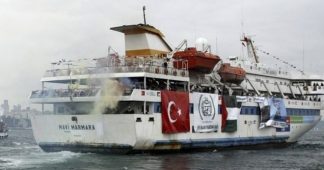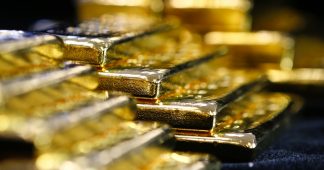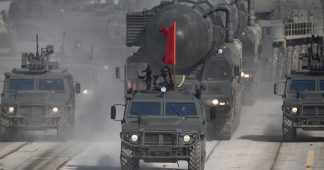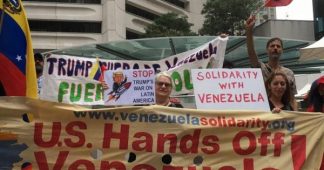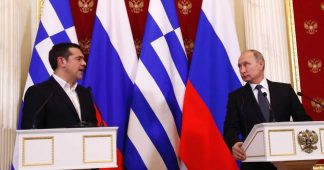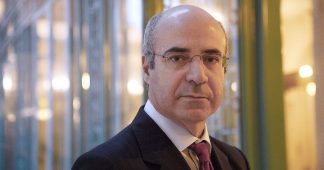Moscow is set for a showdown with Western judges and 1990s Russian oligarchs, over a new ruling enabling the country to refuse to pay what is considered to be the biggest legal settlement in history, over a collapsed oil empire.
The Constitutional Court, one of Russia’s highest judicial authorities, ruled on Friday that the decision of an international tribunal in the long-running dispute over the now-dissolved energy giant Yukos is incompatible with Russian law. The case has been heard by a court in The Hague, which claims jurisdiction under the terms of the Energy Charter Treaty, and awarded the company’s former shareholders a $50-billion payout from the Russian government earlier this year. Moscow claimed a win in November on the other side of the Atlantic, when a US court, which had been hearing the case simultaneously, decided to throw it out.
However, as Russia signed but never ratified the Treaty, which hands powers to international tribunals, the Constitutional Court has now determined it is not bound by the terms of The Hague judgement. The ruling states that, while the country’s government of the day began the process of signing up to the pact in 1994, they did not have the authority to make national laws inferior to international agreements, or to “challenge the competence” of Russian courts. Therefore, the jurists conclude, adhering to the Dutch court’s demands would be “unconstitutional.”
The claimants in the case are oligarchs who lost cash when Yukos, once among Europe’s largest firms, collapsed. They say that a multi-billion dollar tax bill and the arrest of its CEO and founder, Mikhail Khodorkovsky, on fraud charges amounted to state ‘appropriation’ of its assets. However, Russian authorities insist that the shareholders cannot be considered “legitimate,” and that the Dutch judges had steamrolled over the country’s laws against corruption and fraud when ruling in their favour.
As far back as July 2014, The Hague ordered Moscow to cough up $50 billion to compensate the plaintiffs. After exhausting the appeals process in February this year, Russia’s lawyers asked the Dutch Supreme Court to consider the case and overrule the decision. However, at the start of December, it similarly backed the oligarchs.
Russia has insisted that the judgements are “politically motivated,” and in December the country’s Justice Minister, Konstantin Chuychenko, told journalists that the case was part of a “legal war that has been declared on Russia.” He added that “Russia must adequately defend itself and, sometimes, even attack back.”
Now standing at around $50 billion, around the same ballpark as Russia’s annual military budget, the colossal settlement is thought to be the largest award in history. If the country now rejects the bill, it would spark one of the most serious impasses in international legal history, and leave Western states deciding whether to respect Russia’s constitutional ruling, or to enforce the demands by confiscating assets.
Yukos’ former shareholders have already sought to have Western governments take control of Russian property overseas as an insurance policy in case Moscow refuses to pay up. However, in November, a judge in the simultaneous hearing in the US refused that request, saying that “the Russian Federation is a sovereign country with economic tendrils that cross the globe, not an insecure potential debtor that must be required to post security lest there be no assets to seize at a later date.”
Not all countries have taken the same approach, however, and in 2015 Russia’s diplomats slammed France and Belgium for confiscating state cash in overseas banks, and even buildings, to be held as collateral in the case. Moscow again rejected the court’s authority and said their move was “an openly hostile act.” Tim Osborne, a British lawyer representing the former shareholders, said at the time that such seizures were necessary because Russia “has no regard for international law or the rule of law.”
At its height, Yukos produced 20 per cent of Russia’s oil, placing it firmly among the ranks of the world’s most valuable enterprises. It had been formed by the privatization of former state assets after the fall of the Soviet Union, with Khodorkovsky acquiring the assets for a fraction of their worth at an auction that one economist, Andrey Illarionov, called “the swindle of the century.”
Khodorkovsky claims his arrest on fraud charges and the subsequent collapse of Yukos was tied to his political activism and his personal animosity towards Russian President Vladimir Putin. Putin, however, claims that the oligarch, once said to be Russia’s wealthiest man, had admitted his guilt to him privately in exchange for a pardon in 2013.
Khodorkovsky insists that he has renounced any claims to his former empire and that, should a settlement be reached in the Yukos case, he would not stand to benefit. However, Russian authorities are said to suspect that a number of claimants have close financial ties to the former oil magnate
Published at www.rt.com
